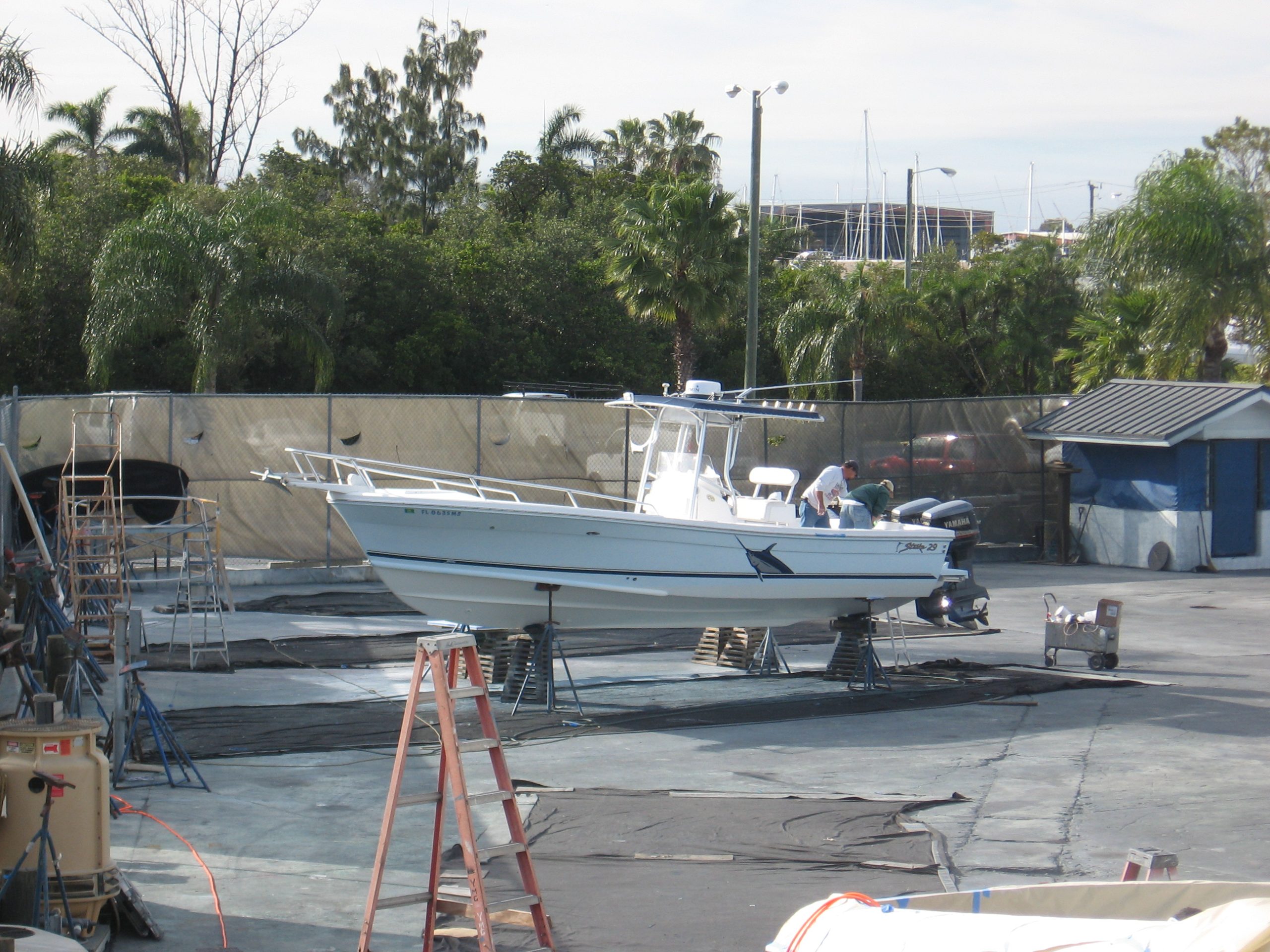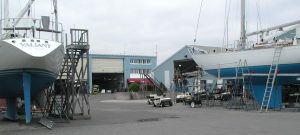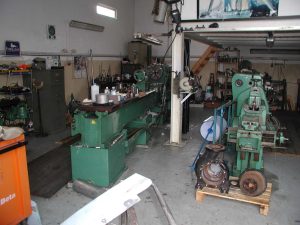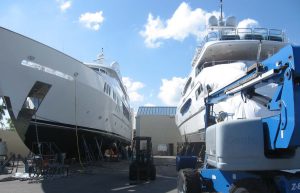
Coordinating the Service Department
Published on January 17, 2022“What do you mean my boat is not ready? … but you promised!” That is among the worst calls a marina can receive, and, truth be told, it happens all too often. At this point, the customer doesn’t want to know why the boat isn’t ready. It isn’t relevant to them whose fault it may be, and they are no longer caring about the various reasons the work may have taken longer. They just want their boat!
The marina may have legitimate reasons for the delay – the technicians were sick, the subcontractor did not perform on time, the parts that came were the wrong parts and had to be reordered, the work became more extensive than was originally thought, and the list goes on. And then of course there are times when things just drop through the floorboards.
So how do you help prevent the above scenario? In most cases it comes down to better coordination and conversation. Simple but true!
The Business of Service
Marinas are in the hospitality business and marinas provide service. We have chosen to focus on the actual service department, but the same types of issues apply to the entire marina, whether or not repair service is part of the facility.

It is no secret that the boating public’s demographics are changing, with boaters being more demanding and less understanding. After all, most customers think that their problem, even if something relatively minor, is the most significant of all and you should just drop everything to solve it!
This translates to those in the marina industry needing to be much more sensitive and responsive to customer perceptions and expectations.
Coordination of the service department is of paramount importance, and it starts with the first contact with the customer and continues through the payment of the bills and return of the boat to the customer. And the larger the organization is, the more that coordination is needed.
The first point of contact with a customer for service should be directed to the service manager to have a candid discussion of the service desired. If the service department is backed up, this should be communicated to the customer. One of the common service problems is that the customer’s issue may not be fully communicated to the service manager, may not cover the full extent of the issue, or may be undefined. Starting off on the right foot can make a big difference.
Many times a customer will come to the marina and the service manager or lead mechanic is not readily available, and the front office takes down the information. Unfortunately, we know of many instances where the translation of the issues was either not as descriptive as that from the customer or was misinterpreted or relevant information was left out, which may have been interpreted as not significant.
An important suggestion is that the service manager and/or the mechanic who is or will be working on the project talk directly to the customer. You might be surprised at the little details that an interaction can bring out that can be very meaningful in identifying the problem and finding a solution.
For example, I happen to know of a customer who brought in a high-performance boat and talked with the service manager with a detailed description of the issue and a mindset of what had to be undertaken and how long it should take. The service manager took detailed notes and suggested to the customer that the description provided was very helpful, but also might point to other issues. The customer thought it was a carburetor problem. The service manager said he would have a mechanic take a quick look at the boat and see if he could provide a preliminary diagnosis. That afternoon the mechanic reported to the service manager, who quickly called the client, and relayed that the problem most likely was not the carburetor but might be more extensive, and provided a timeframe for a more detailed hands-on determination. It turned out there was water leaking into at least two of the cylinder valves and, due to age, it would not be cost-effective to try to rebuild the engine. A replacement engine, used or new, was suggested. The customer was given both a timeframe and cost “guestimate” range, but was told that until the engine was pulled it was unclear if the existing attachments, parts or other fittings could be used or would have to be “massaged.” This of course was quite a pile of bad news, but open lines of communication and the respectful way the client was treated made a huge difference in how the diagnosis was received.

We also recommend setting up a sort of triage process when the boat comes in. Instead of just letting the boat sit there until its service turn comes up, have a mechanic take a quick look at the issues right away and do a quick diagnosis of the problem, which can allow ordering of parts and/or materials in advance of working on the boat, thereby having the potential to greatly speed up the process. Where this step has been implemented it has had a significant benefit to the overall turnaround times. As part of this process one will also have a better idea right from the start as to what the likely amount of work will be required for fitting the boat into the schedule as well as giving a preliminary estimate to the customer of when they might get their boat back.
Preparation and Communication
Getting a jump on ordering known reoccurring replacement parts may be of even greater importance for many marinas given the current supply chain crisis, that has created some major new workflow problems. As in so many other industries, most marinas in more recent times have tried to carry limited parts inventories – relying on the fact that they can largely be ordered when needed. We are, at the moment, increasingly hearing of marinas greatly increasing their inventories of those parts that have a high probability of being needed during the upcoming service/boating season. Where many marina parts inventories were recently being kept around 10% to 20% of a six months’ to year’s supply, we’ve heard of some facilities increasing that percentage to 40% to 80%. Of course that type of stockpiling may create an even greater supply crisis (who can forget the toilet paper crisis at the onset of the pandemic!), but that impulse can be hard to resist when you are trying to ensure that you will be able to keep your customers happy.
Another aspect of the modern service department where coordination has become of even greater importance relates to the fact that as boats have become more complicated, the types of service needed have turned into more than just tuning up an engine and painting the boat’s hull. Depending on the type of boat there can be numerous experts that may be required, especially with respect to the unending electronic components. Outside contractors are one approach to be able to efficiently fill required expertise. That also means coordinating their aspect(s) of the project. And it seems everyone’s schedules and availabilities these days are an increasingly moving target. This can have a significant adverse impact on the timeline for completing the customer’s desired work. On time and on budget are harder and harder to achieve. This adds to the need to continue to update the customer as to revisions to the timeline. And when things go wrong – and unfortunately they do – let the customer know immediately. Customers make their plans based upon when they believe the boat will be returned to them. Not keeping the customer abreast of issues, even when not definitely known, can end up compounding the issue and, more importantly, affecting the customer’s overall view of the marina.
I’m aware of another situation where a customer had been traveling on business and, when he got back, stopped by the boatyard fully expecting his boat to be back in the water, as it was supposed to be finished over a week before. It was very early in the morning and most had not yet arrived. A relatively new and younger employee was there and the customer asked where his boat was. The employee pointed to one of the work sheds and told him that everything was still apart and it would be “weeks before the boat would be ready.” The customer flipped out as he had arranged a major business outing that coming weekend based upon his thinking the boat would be ready. Needless to say relations deteriorated dramatically. No one in the marina had bothered to contact the customer regarding the delays.
Keeping the customer informed by the service manager or mechanic as the repair proceeds really has proven to be extremely helpful in managing customer expectations.
There is also a potential for another silver lining in the service department. As the boat is being serviced which would take a couple of days or more, call the customer and advise the work is proceeding and offer to have them come down at a time of their convenience, including on an evening and weekend. You would be surprised at the additional number of issues the customer might start to talk about that needed fixing. – Suddenly, the work order expands, and the customer is appreciative of the personal service and the opportunity to get other things fixed that were bothersome.

As I mentioned above, coordination and communication extend to all facets of the marina industry. I know of a group of friends that loved to sail and decided to charter a 50-foot sailboat in the Caribbean for the winter holidays from a reputable company. While the organizer for the trip kept in touch with the charter company every couple of weeks, and was assured that everything was in order, when they arrived they learned that the boat was not available as it “had been held up at another port.” A substitute boat was quickly arranged, and it seemed the crisis had been solved. But on the way out of the harbor the engine overheated and the boat had to be towed back in. Turns out the boat was in for repairs and never should have been sent out to sea in the condition it was in. Not only did relations turn ugly, but the incident was made known throughout the charter industry and with innumerable prospective charterers. That charter company never really recovered.
The adage of “it’s not what you do, but how you do it” comes to mind, though I think it needs a bit of a rewrite – it’s both what you do and how you do it that matters!
Time to play in the snow.
Dan Natchez is president of DANIEL S. NATCHEZ and ASSOCIATES, Inc., a leading international environmental waterfront design consulting company specializing in the design of marinas and marina resorts throughout the world. He invites your comments and inquiries by phone at 914/698-5678, by WhatsApp at 914/381-1234, by email at dan.n@dsnainc.com or on the Web at www.dsnainc.com.
| Categories | |
| Tags |






